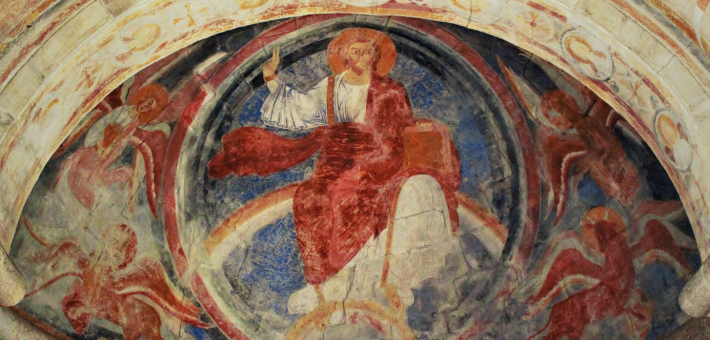Commentary on Ezekiel 34:11-16, 20-24
The Revised Common Lectionary has selected two handfuls of verses from Ezekiel 34, but the whole chapter is helpful context for the preacher. Ezekiel 34 is concerned with the issue of leadership and uses the imagery of shepherds and sheep to talk about leaders and the people. One of the rebuked leaders in view here is undoubtedly Israel’s king, so the connection of this prophetic passage to Christ the King Sunday appears obvious.
I must admit candidly that this specific Sunday in the liturgical calendar fails to engender excitement and hope for me. Kingship is a curious notion for people who live in a democracy; it is a long way culturally and politically from ancient Israel’s monarchy (or Rome’s empire) to America’s vulnerable democracy today. Yet, some of us are so accustomed to hearing about (and singing about!) the admittedly patriarchal concept of kingship that we often fail to admit its oddness in our modern lives. When was the last time you saw a king in real life? As if to prove my point, I sang the words “crown him” just this past Sunday in my church! The preacher navigates then the (overwhelmingly masculine) territory of an incredibly familiar word, “king,” which people seem to believe profoundly and intuitively has some strong connection to God but which also conjures up images of Buckingham Palace. That is the liturgical context for this passage.
Now add the biblical language of shepherds and sheep to the conversation, and we may move even further from some people’s practical lives. I must admit that as someone who lives and works in a major U.S. city, I don’t regularly encounter sheep. Therefore, I do not have intimate knowledge of a shepherd’s responsibilities.
Talk of kingship and shepherds then demands interpretation and contextualization. We are actually talking about power, authority, and leadership. We may not need treatises on animal husbandry or an exhaustive history of the kingdoms of Israel and Judah to understand these images. Still, we need to translate these ancient concepts into our contemporary context.
The first ten verses of Ezekiel 34, which are not a part of today’s reading, provide the necessary background: God condemns the supposed shepherds/leaders of Israel. These leaders have not truly led the people. They have allowed the people/sheep to scatter and become prey. These shepherds have not fed the flock. This type of leadership is unacceptable and requires divine action in the form of judgment. God judges these shepherds for their poor, inattentive, selfish leadership. They are oppressive! Their job was to watch over the vulnerable
It is helpful at this point to situate this passage within Israel’s exilic moment. The people of God have lost their land, the temple, and the king. This profound loss leads to not just a social crisis but a theological crisis.
How are the people to go forward without the land given to them by God?
How are they to worship God without a temple? Who will be their leader?
The devastating experience of exile brings a new understanding of God and God’s relationship with the people.
The exile has exposed the leadership responsible for helping the weak and defenseless. Israel has been thrown to wild animals and needs a rescuer.
So, in verse 11, God says that God will step in to become the shepherd. God will seek out the lost sheep, rescue them from danger, and feed them. Notice the verbs used—all the actions taken—by this newly appointed shepherd (verses 12-16): seek, rescue, bring them out, gather, feed, bring back, bind up, and strengthen. The previous shepherds’ actions led to exile and catastrophe. So, now God is needed to repair the calamity.
The conclusion of God’s actions in verses 11-16 is the passionate statement: “I will feed them with justice.” The people will go from lack of food to the food of justice. After what happened to them under previous leadership, they need just relations and treatment. God will set things right as the new shepherd.
The preacher might linger here and reflect on what it might mean today for us to be fed with justice. How are we to set things right? How might the nourishment of God’s justice lead us to action?
Bread of heaven, bread of heaven,
Feed me till I want no more.¹
Notes:
- “Guide Me, O Thou Great Jehovah” by William Williams; trans. by Peter Williams. The United Methodist Hymnal, No. 127



November 26, 2023